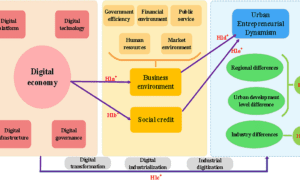Enterprises have long relied on fixed-line connections like DSL and fiber. However, nowadays, waiting months for installation and dealing with rigid infrastructure is no longer an option. Businesses require connectivity that can move as fast as they do.
That is where Fixed Wireless Access (FWA) comes into play. It is stepping in as the agile, scalable alternative. With rapid deployment, strong performance, and the flexibility to support everything from IoT to broadband internet, FWA is quickly becoming the go-to choice for digital enterprises worldwide.
The Shift toward Agility with Fixed Wireless Access
Modern enterprises want to innovate faster, serve customers better, and expand into new markets with minimal friction. Traditional fixed infrastructures can take very long to install and are often limited by geography.
By contrast, Fixed Wireless Access solutions allow businesses to establish high-speed connectivity quickly and without hassle, whether at a city office, a temporary project site, or in a rural location. Additionally, providers offer complete solutions including management platforms and flexible pricing.
A Reliable Backbone for Emerging Technologies
Enabling IoT and Cloud Adoption
Digital enterprises increasingly depend on technologies such as IoT, cloud services, and edge computing. These require reliable, high-capacity networks with low latency. FWA delivers on these requirements, ensuring that businesses can, for example, deploy IoT devices and process real-time data without worrying about connectivity issues or bottlenecks.
Industry Examples
⇒ Financial services firms are adopting IoT-enabled devices for payments and security.
⇒ Manufacturers are using connected sensors for predictive maintenance.
⇒ Logistics providers depend on real-time data flows for fleet optimization.
In all cases, connectivity is the backbone, and FWA provides the reliability needed to scale these solutions seamlessly.
Building Resilient Networks
Speed is one of the challenges that FWA solves, but ensuring continuity is another important one. A single network outage can cost millions in lost productivity, missed transactions, and damaged customer trust. This is where Fixed Wireless Access shines.
Because FWA is independent of physical cables, it is less vulnerable to problems like construction damage or local infrastructure failures. It offers a robust alternative path to keep operations online, even in high-pressure environments.
Enterprises in sectors such as finance, maritime, and IoT are turning to FWA not only for its performance but also for its ability to keep things running. By incorporating FWA into their connectivity strategy, businesses gain the peace of mind that their networks can withstand unexpected events, which prevents big losses or unhappy customers.
Cost-Effective Scalability
One of the biggest advantages is speed of deployment. However, it doesn’t stop at that: FWA also offers a cost advantage. Businesses can scale connectivity as they grow without large expenses. This makes it useful for all kinds of enterprises, such as ones that open, close, or relocate frequently and/or need flexible solutions.
Looking Ahead with FWA & Flexible Internet Connectivity
The momentum behind Fixed Wireless Access, and the attention it gets, reflects a broader trend toward wireless-first strategies. Enterprises recognize that the future of business connectivity lies in solutions that are scalable.
As the digital economy continues to grow, enterprises that embrace FWA will be better positioned to innovate and adapt. Alongside these advancements, mobile connectivity (mainly 4G and 5G) continues to play a critical role in keeping businesses connected. Providers like XIPO CONNECT offer such flexible 4G and 5G connectivity via high-speed and reliable mobile internet services. These wireless solutions give enterprises the agility for excellent connectivity, wherever they operate. With its speed and scalability, Fixed Wireless Access remains very important for modern connectivity strategies.



































